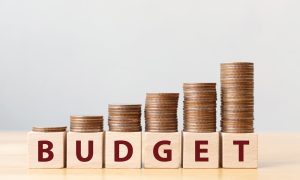Saving money is important for everyone, but it can be challenging for people on a low income. If you don’t have much money, most of it goes towards basic necessities like rent, food, and bills. But even small savings can add up over time. Saving money isn’t just about putting it aside; it can also provide security, reduce stress, and prepare you for unexpected expenses. Knowing you have some extra money can make you feel better, and over time, these savings can become a valuable resource.
Change Your Perspective on Saving
The right mindset is one of the top priorities when saving for people on a low income. Many people think they can’t save because they don’t earn enough, but saving doesn’t always mean saving a lot. Even setting aside a small amount each month can help you develop beneficial habits and stay motivated. Making saving a priority instead of an afterthought can be helpful. It’s better to save a little at the start of the month than to wait until the end. This shift in mindset can make saving achievable and achievable.
Make People Aware of Their Spending Habits
A simple and effective way to save money is to track where their money goes. Many people are surprised to discover how much they spend each day on small things like coffee, snacks, and subscriptions. You’ll notice patterns in your spending that might be difficult to spot if you track them in a notebook or on a mobile app. Once you recognize these behaviors, it’s easier to stop spending money on unnecessary things and save instead. Maintaining a clear mind is the first step to making better decisions when finances are tight.
Prioritize Needs Over Wants
When finances are tight, it’s important to distinguish between wants and needs. Essentials like food, shelter, transportation, and healthcare are called needs. Things that make life easier but aren’t essential are called wants. Prioritizing necessities ensures the coverage of necessary expenses and the wise use of extra money. You can save more money by learning to postpone desirable expenses or find less expensive options. This habit helps you stay disciplined and makes it easier to live within your means.
Set Small Savings Goals
A beneficial way to start is by setting a few small, achievable savings goals. Setting a goal, like saving a few euros a week, can make it achievable and motivate you to achieve it. Small goals add up over time. You can also set goals for specific things, like saving for school supplies, building an emergency fund, or setting aside money for unforeseen medical expenses. When you have a clear goal, saving becomes less of a sacrifice and more of a reward. Even the sense of accomplishment you get from achieving small goals can help people stick to them.
Create a Budget
Everyone, regardless of income, can use a budget to better manage their money. A budget shows you your income, expenses, and how much you can save. A simple budget can help you determine where you can make adjustments if your income is low. Meal planning can help you save on food, and understanding your energy bills can help you save. A budget isn’t about restricting your life; it’s about making sure you’re using your money as effectively as possible. Even if you don’t have much money, a budget can help you save.
Paying Off Debt and Freeing Up Money
Saving can be difficult because debt eats into the income you could otherwise have saved. Credit cards and other high-interest loans can significantly strain your finances. One of the best ways for low-income earners to save money is to pay off debt or avoid it whenever possible. Even paying off a small amount of additional debt can reduce stress in the long run. As your debt decreases, you can save more. Making a habit of paying off debt quickly prevents it from growing and builds a stronger financial foundation.
Building an Emergency Fund
An emergency fund is one of the best ways to save money, especially for people on a low income. Life is full of surprises, and without a safety net, unexpected expenses like medical bills, car repairs, or job loss can be incredibly stressful. Even saving a small amount each month can create a valuable buffer over time. An emergency fund can eliminate the need for loans or credit cards during difficult financial times. This financial safety net offers peace of mind and practical support.
Conclusion
Saving money on a low income may seem challenging, but with the right mindset and planning, it’s not impossible. You can save over time by taking small steps, such as managing your spending wisely, prioritizing, setting realistic goals, and using budgeting tools. Paying off debt and finding new ways to save or earn money will help you further improve your financial situation. Persistence and patience are crucial, as even small savings can add up over time. Saving isn’t just about more money; it’s also about protecting your security and laying the foundation for a better financial future.
FAQs
1. Is it really possible to save money if you don’t have much?
Yes, even small amounts saved regularly can add up over time. The most important thing is to start within your means and develop a saving habit.
2. How much should I save if I don’t earn much?
There’s no set amount. Even saving a few euros a week can make a difference. Instead of saving generously, it’s better to focus on consistency.
3. What’s the best first step to saving money?
A beneficial first step is to track your spending and understand where your money goes. This will help you determine where you can cut back and free up some money for savings.
4. Should I pay off my debt before saving?
In most cases, a combination of both is best. By paying off high-interest debt and saving a little at the same time, you’ll achieve both goals.
5. Why do even low-income people need an emergency fund?
An emergency fund is like a safety net to protect your finances. It allows you to cover unexpected expenses without going into debt. It gives you a sense of security and reduces stress.




